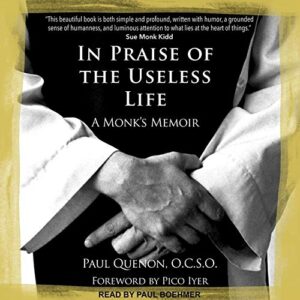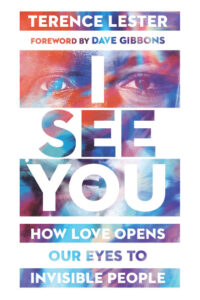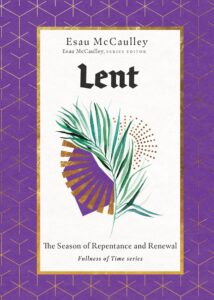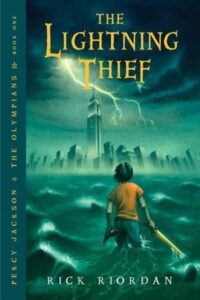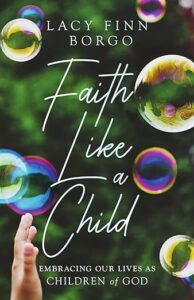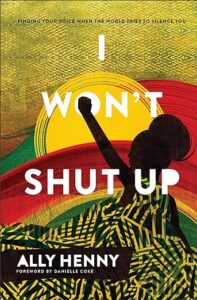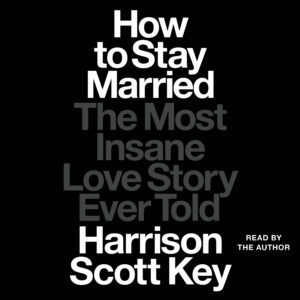 Summary: A husband’s memoir about his wife’s affair and how he worked to try to save the marriage.
Summary: A husband’s memoir about his wife’s affair and how he worked to try to save the marriage.
This is a book that I both appreciated and recommend and one that I have some concerns about. Mostly, I appreciate the honesty. I kept thinking about CS Lewis’ A Grief Observed. In both books, the pain is told in real-time without the restraint that would come later. That is an enormous strength because honest pain is so uncomfortable and unusual. But it is also hard to hear. And honest pain is often a bit irrational, so you do want to shake Harrison Scott Key quite often. Do not read this book if you do not want an honest account of pain. There is a lot of grace here as well, but the content warning is for the pain.
I am also concerned with the Gary Thomas connection. I listened to How to Stay Married on audiobook (which I think is probably the best format for this book), so there may have been a citation to Gary Thomas. But if not, Key’s explicit idea at the end, which was implicit often in the book, is Thomas’ line, “Maybe marriage was to make us holy, not happy.” I know why people gravitate to that line. There were times when I was more attracted to that idea. Marriage over time will often (not always, but often) have periods of pain and difficulty. The problem is that God can use anything to help mature us. However, in the way Thomas presents the idea, marriage was created to be particularly painful so that we can mature. It feels to me that if we were lucky enough to be married before the fall when sin did not enter the picture, his idea would not really make sense. People can mature in many different ways. Marriage is one of those. But people who are not married can still mature, and we do not need to be married to become mature.
I can understand why Key wanted to write this book. I often need to write to process my thoughts. It is a type of therapy, but therapy writing does not necessarily need to be published. I kept thinking about kids reading this when they got older, or his kids’ friends, or his wife’s future friends. This is always the difficulty for memoirs. There has to be a balance between honesty and the way that honesty can be harmful to others. In the book he talks about how in exploring his own responsibility for the problems in his marriage that he came to understand that his humor was often cruel. He was not attempting to be cruel, but he was also not attempting to empathize with the person he was being cruel to. He was just trying to be funny to make other people like him. Everyone wants people to like them, but part of maturity is learning how to put the needs of others before your own. And I wonder if he will think the words are worth it in 10 or 20 years.
In a more positive sense, How to Stay Married is yet another book by a layperson that was not intended to be a “Christian” book. It is a book that tries to explain their life, and because they are Christians, it is impacted by Christian theology and practices. I think Bono’s book Surrender is another good example. How to Stay Married has no issues with swearing, discussing sex openly, discussing wanting to harm people in very real ways. But also being a beautiful illustration of forgiveness and the need for a community (church). No Christian publisher would publish this book, and that is, in some ways, too bad. I also don’t think many Christian publishers would publish many wonderful devote Christian writers who do not fit a certain mold. This is not a book that was written to be an instruction manual for pastors, but I think pastors would benefit from the discussion about the role of the church and the church community that is detailed here.
I also worry that people may take this too literally, taking it as instructions instead of a biographical illustration of how this one particular couple moved forward. That is more to do with bad reading than the book itself. Many people want overly clear instructions instead of grappling with how life isn’t simple.
I also have a lot of concerns about stories being written too soon. I had this concern about David Brook’s Second Mountain and a number of memoirs by people who are under 50. I am not going to say no memoir should be written by someone under 50, but I would be wary. I just don’t think marriage and parenting books should be written by people who are too close to the advice they are giving. Stories we hear are told by the authors in the way they want to tell them. So we don’t know what changes would happen if this book were told later. Will they still be married in five years, ten? I want them to be still married. Key notes that no marriage is perfect. But it would be a different book if he had written this five or ten years from now.
This is a spoiler, so stop reading if you do not want to spoil the ending.
Read more
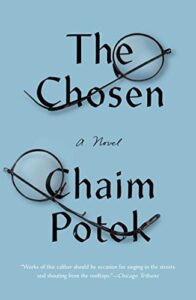 Summary: A classic coming-of-age novel about two Jewish teens (one Orthodox, one Hasidic) who meet while playing against one another in baseball and become friends.
Summary: A classic coming-of-age novel about two Jewish teens (one Orthodox, one Hasidic) who meet while playing against one another in baseball and become friends.